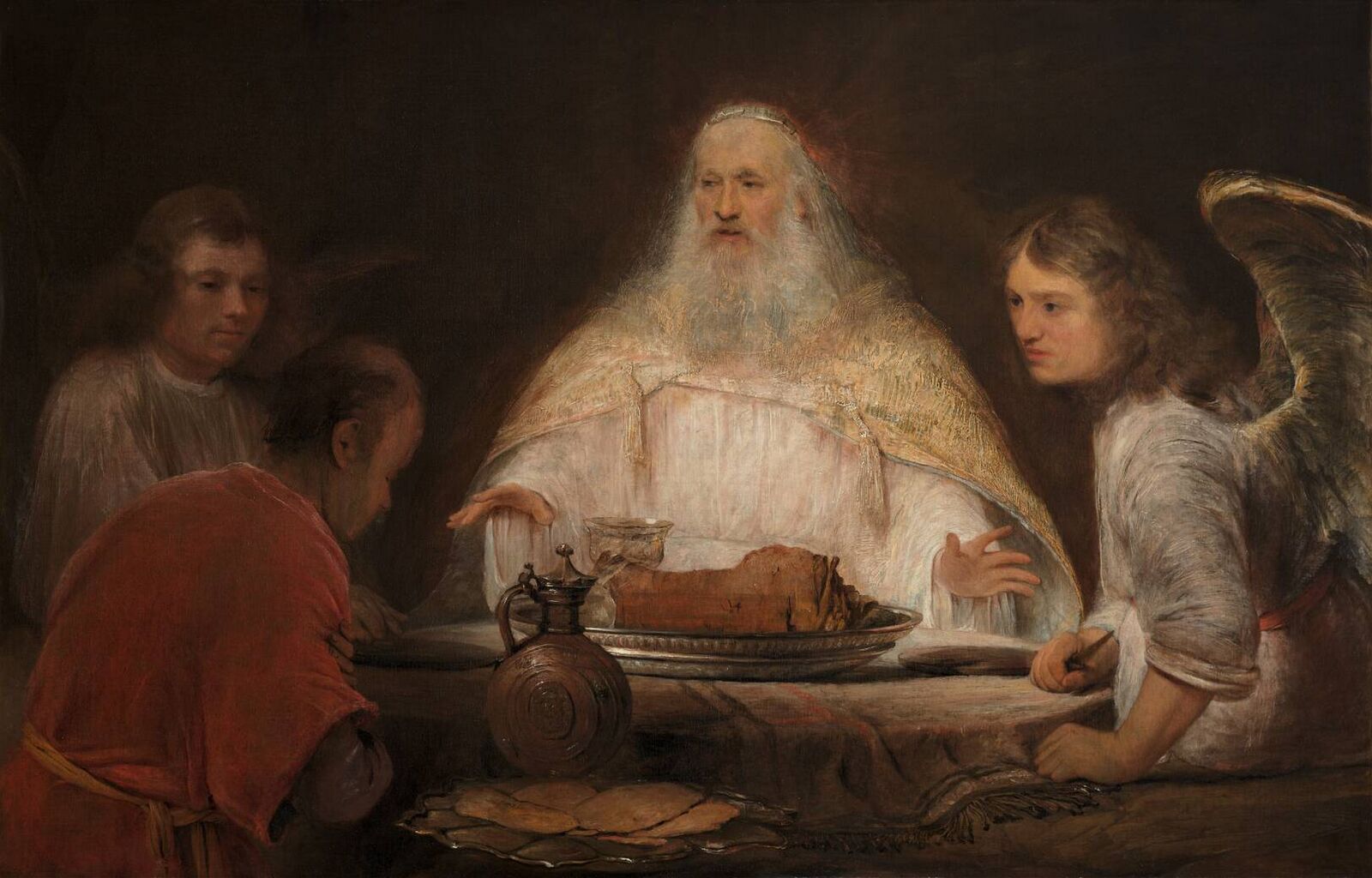A Divine Prop
There was the legend of the stick that turned into a snake, a bosom that made hands leprous and a mantle that split seas. Heaven knew that it was always necessary to pull a trick or two in order to establish a messiah. Folks needed some convincing to accept that whoever was claiming a divine mandate was indeed divinely mandated.
In matters of the monarchy, things are a little different. A most important role of a king is the security of the people, their land and livelihood. For a king, folks needed men of valour, not conjurers.. Therefore, what worked for Moses and Elisha wouldn’t work for Saul or David. The latter needed to earn their stripes on the battle field.

Saul did just that with Nahash the Ammonite. The people of Jabesh-Gilead had offered to be servile to Nahash rather than go to war with him, but that was not enough for Nahash. He wanted to humiliate Israel. So, he asked for the right eye of the people of God as a token of a covenant of servitude. Saul defeated Nahash in battle. Consequently, all objections to his claims to the monarchy evaporated.
Then came David. God had anointed him king, but the people did not know that. Therefore, he too needed to demonstrate his prowess in battle. All his claims to overcoming lions and bears were good only for tales by moonlight, but Goliath was a different proposition. This gargantuan edifice threatened to enslave Israel, if Israel couldn’t present a champion to defeat him in battle. Israel became desperate and not a little embarrassed at Goliath’s taunting.
God’s relationships with people were enshrined in codes of mutual responsibility and privilege.
Cometh the hour, cometh David. He took his shepherd’s bagful of stones, a sling and a stick. He needed the sling, he needed the stones, but the stick he carried out of habit. Strangely Goliath didn’t see the sling or the bag of stones. He only saw the stick – which was superfluous to David’s needs – and he saw that there were two of them! Talk of a double vision.
For context, slingers were the dreaded ancient near Eastern equivalent of modern-day snipers. They had an uncanny ability to affect the outcome of wars. In Judges 20, the tribe of Benjamin with 6000 soldiers defeated Israel’s 40,000 soldiers, because they had in their camp, 700 slingers. How Goliath the head of an army had an adversary with a sling in his hand, but engaged in small talk is a biblical mystery.
That episode launched David’s celebrity. Overcoming Goliath made David look good. Goliath was the prop required to set in motion God’s purposes concerning David. How could Goliath, who did not know his sticks from his slings so humiliate Saul and humble Israel, but fell so easily and miserably before David?
It was all about positioning.
Who God sees when he looks at us determines where we stand before God. Where we stand before God determines where we fit in his schemes. And where we fit in his schemes determines whether what is ahead of us is an opportunity or a problem, a pillar of light or a pillar of darkness.
When David appeared on the pages of scripture, we were told that God approved of the content of David’s character, but we had no record of his relationship with God prior to the meeting with Samuel. Scripture went on to lay bare his whole life – warts and all. He was no angel. He had a weakness for other people’s wives.[1]1 Samuel 11:3-4 He could hold a grudge forever.[2]1 King 2:8 He was not squeamish about shedding blood.[3]1 Chronicles 22:8
God saw in David, a man with whom He could do business.
On the other hand, he did not take grace for granted.[4]2 Samuel 5:12 He sought the face of God before every endeavour.[5]1 Samuel 23:4 He feared God above any sense of self-preservation or ambition.[6]1Samuel 26:8-11 Perhaps above all, when he honoured his late friend, Jonathan, by bringing Jonathan’s son, Mephibosheth, to his table,[7]2Samuel 9:1-7 he demonstrated that he knew the value of covenant loyalty.[8]1Samuel 20:12-17
By the fear of God, David warmed his way into a covenant relationship with God [9]Psalm 25:4 and by loyalty to that covenant, David hid himself in a place in God where no enemy could reach. [10]Psalm 15:4
Over and above his foibles as flesh and blood, covenant loyalty covered a multitude of his sins.[11]Psalm 32:1-2
Whatever else David did or didn’t do, God saw in him a covenant keeper, a man who would be true to his word, who would honour his commitments, who would swear to his hurt and not renege, and therefore, a man with whom God could do business.
And that’s all the difference between Israel and Saul on one hand, and David on the other. Saul offended when he sought to self-preserve, seeing his office as a privilege to hold on to, even if he had to betray his calling. David saw the monarchy as a Trust, a position held at the pleasure of God for service to the people.[12]1 Chronicles 14:2 Whereas Israel struggled at every turn with the demands of a covenant relationship with God,[13]Jeremiah 31:32 and Saul didn’t appear to appreciate the delicate demands of a covenant,[14]1 Samuel 15:17-19 David had a culture of keeping covenants and God chose him and established his covenant with him,[15]Psalm 89:3 saying:
“I have found David my servant; with my holy oil[16]Psalm 89:20…my mercy will I keep for him for evermore and my covenant shall stand fast with him.“[17]Psalm 89:28
Those were the words of the covenant that Goliath walked into. That was the promise that hit Goliath with the blow of a stone.
As discussed in the first instalment of this trilogy, God is big on covenants. From Noah through Abraham to the ancient Israelites, God’s relationships with people were enshrined in codes of mutual responsibility and privilege.
Covenant loyalty is about knowing why God has chosen us and applying ourselves steadfastly to our ministry.
God does not necessarily enter into a once and for all covenant with people. If that were the case, the Sinaitic covenant wouldn’t be necessary as there was a subsisting covenant with Abraham, another with Isaac and another with Jacob.[18]Leviticus 26:42 All these covenants were binding on the Israelites. Nonetheless, God brought Israel into a covenant at Sinai and another one in Horeb [19]Deuteronomy 29:12 and another one with Joshua[20]Joshua 24:25-26 and so on.
David stood on the platform created by the covenants of God with Abraham, Isaac and Israel and carved out a bespoke covenant relationship with God. He did not rest in the belief that the earlier covenants sealed his relationship with God. By honouring God, walking humbly before Him and keeping faithfulness, he was elevated to a higher calling. He pleased God and consequently walked in victory.
David’s experience teaches two important lessons.
As I wrote above a covenant relationship is a code of responsibilities and privileges. While we celebrate God’s grace in bringing us into a partnership, we need to be mindful of what God wants out if it. In Psalm 89:20-28, God confirms his anointing on and covenant with David. In order to prove himself loyal to that covenant, David needed to discern what God wanted out the deal. Scripture tells us that:
“And David knew that the LORD had established him as king over Israel and that his kingdom had been highly exalted for the sake of his people Israel.”
So it was not all about David. The covenant was an article of faith that once exalted, David would work for the benefit of God’s people. With that knowledge David got to work and God was not disappointed. As the Psalmist wrote:
“He chose David also his servant, and took him from the sheepfolds. From following the ewes great with young he brought him to feed Jacob his people, and Israel his inheritance. So he fed them according to the integrity of his heart; and guided them by the skilfulness of his hands.”[21]Psalm 78:70-72
Covenant loyalty is about knowing why God has chosen us and applying ourselves steadfastly to our ministry. The covenant of the cross of our Lord Jesus Christ need not be an end in and of itself, but a platform upon which to build a closer and uncommon standing before God. St Paul’s exhortation to work out our salvation[22]Philippians 2:12 is an indication that there’s room to build on what Christ did.
The covenant of the cross of our Lord Jesus Christ is a platform upon which to build a closer and uncommon standing before God.
Christ’s is a ministry of reconciliation.[23]2 Corinthians 5:18-19 The Lord God, who initiated that reconciliation, indicated it was meant to be a first step in our relationship with him. In Isaiah 56:6-7, He said a covenant relationship was necessary for a perfect union with him. In his words:
“Also the sons of the stranger, that join themselves to the LORD, to serve him, and to love the name of the LORD, to be his servants, every one that keepeth the sabbath from polluting it, and taketh hold of my covenant. Even them will I bring to my holy mountain, and make them joyful in my house of prayer: their burnt offerings and their sacrifices shall be accepted upon mine altar; for mine house shall be called an house of prayer for all people.”
And how do we take hold of a covenant with God? The Psalmist wrote:
“The secret of the LORD is with them that fear him; and he will shew them his covenant.”[24]Psalm 25:14
Hence St Paul exhorted to work out our salvation with fear and awe. It’s a proven way to get God involved with us at much deeper levels. It’s guaranteed to turn our Goliaths into divine props.
.
References
| ↑1 | 1 Samuel 11:3-4 |
|---|---|
| ↑2 | 1 King 2:8 |
| ↑3 | 1 Chronicles 22:8 |
| ↑4 | 2 Samuel 5:12 |
| ↑5 | 1 Samuel 23:4 |
| ↑6 | 1Samuel 26:8-11 |
| ↑7 | 2Samuel 9:1-7 |
| ↑8 | 1Samuel 20:12-17 |
| ↑9 | Psalm 25:4 |
| ↑10 | Psalm 15:4 |
| ↑11 | Psalm 32:1-2 |
| ↑12 | 1 Chronicles 14:2 |
| ↑13 | Jeremiah 31:32 |
| ↑14 | 1 Samuel 15:17-19 |
| ↑15 | Psalm 89:3 |
| ↑16 | Psalm 89:20 |
| ↑17 | Psalm 89:28 |
| ↑18 | Leviticus 26:42 |
| ↑19 | Deuteronomy 29:12 |
| ↑20 | Joshua 24:25-26 |
| ↑21 | Psalm 78:70-72 |
| ↑22 | Philippians 2:12 |
| ↑23 | 2 Corinthians 5:18-19 |
| ↑24 | Psalm 25:14 |


